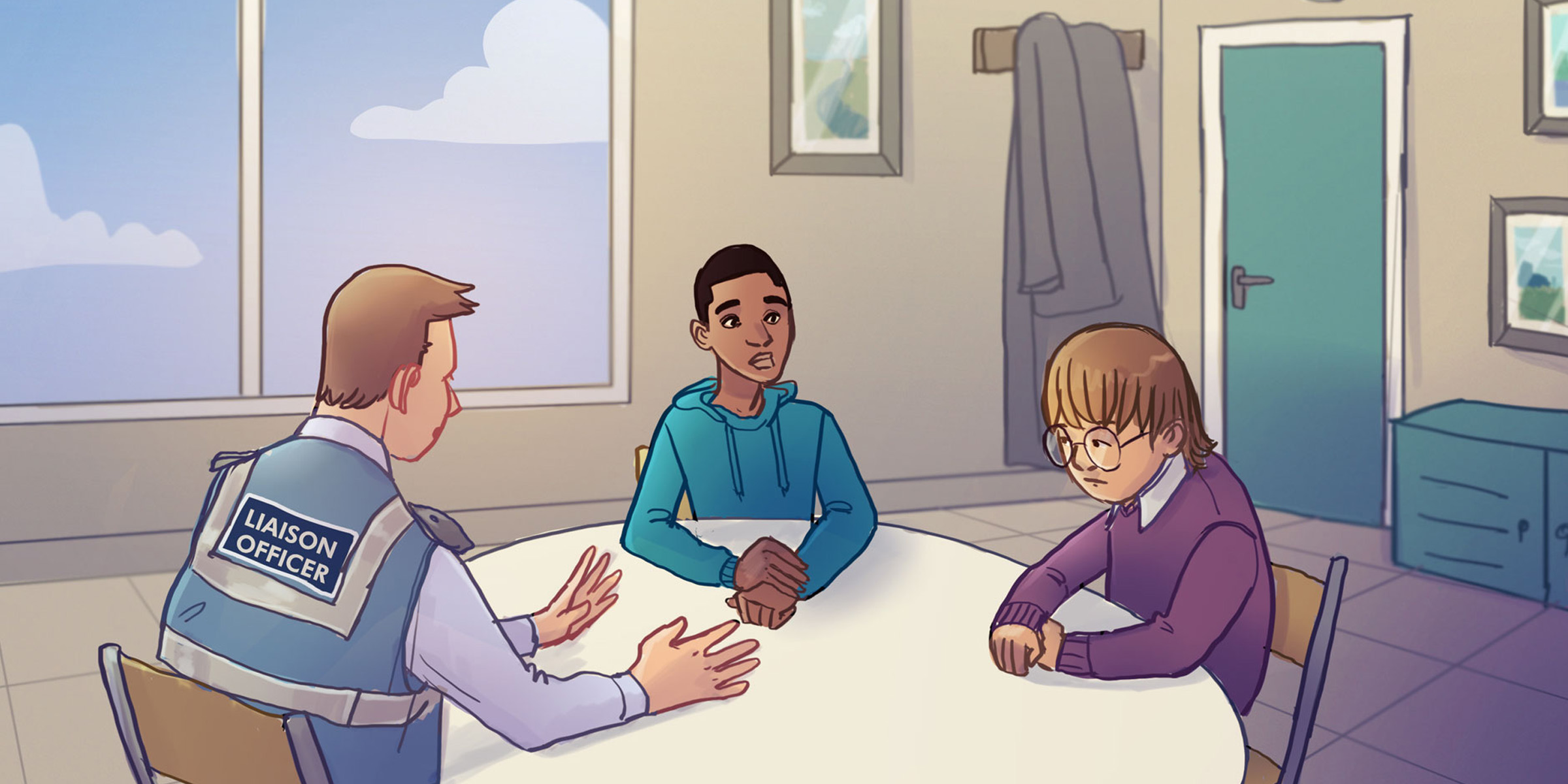“I couldn’t believe he was saying this stuff to me. I was always nice to him”
Getting support
Callum and Charlie’s story was created by young people who have been supported by SAFE! and is based on their experiences.
If you are struggling to cope with the impact of crime or bullying, tell someone what has happened, they might be able to help. To find out more about the support SAFE! provides, check out our website, or get in touch with us directly, and someone will call you back.
You can get immediate help from Childline or by calling on 0800 1111.
Victim Support has information and further help for young victims of crime.
If you are in immediate danger, call the police by dialling 999.
Coping with online abuse/harassment
- Cyberbullying can be scary, confusing and really knock your confidence.
- Don’t be afraid to tell someone, even if it’s only happened once.
- If you feel safe to do so, tell the person that they have upset you and ask them to stop.
- Block the people who are being abusive or harassing you.
- Report them, on the site or to a trusted adult.
- Talking to someone can make you feel better about what’s happened.
- You can get support online.
- Find out how to keep yourself safe online.
- Keep your cool online, respect other people’s views even if they are different to yours.
- If your self-confidence has been knocked, this video has some great tips.
- Or, you can take a look at these 7 tips to feel in control and rebuild your confidence.
- Remember, if things have gone wrong it is never your fault.
Organisations that can help:

How to game online safely
- Gaming online is fun but it’s Important to keep yourself safe.
- Gaming online can have dangers
- Some people might not be who they say they are
- Some people might not be nice
- Some people might not be the age they say they are
- Some games might contain things that upset you, like violence
- It might be hard to stop playing
- Some people might try to trick or pressure you into doing something sexual
- Don’t use your real name on blogs, chatrooms or gaming sites.
- Don’t give out personal details, like your name or where you live.
- Be careful not to spend money in games or apps without realising.
- Report any abuse or harassment you receive and block the player.
- Keep gaming friends in the game. If you don’t know them in real life, don’t meet up with them.
- Try to take a break every hour and stop playing if it stops being fun.
- Remember, if things have gone wrong it is never your fault.
Support for children who are sick
- Having an illness can affect your whole life and be really challenging.
- It’s completely normal to feel confused or overwhelmed.
- Being diagnosed can be a shock, and make you feel like your life is on hold.
- It can help to talk with a friend or trusted adult.
- There are other young people going through something similar, and there is always someone you can talk to about it.
- If your body, appearance or what you are able to do changes, be kind to yourself, you and your body are going through a lot but you are still you.
- There are lots of organisations who can help, like Rainbow Trust.
- Over the Wall offer respite camps for seriously ill children and their families.
- If you do not currently have a diagnosis then you and your family can access support from SWAN UK.
- Special Effect helps young people with disabilities to be able access computer games but making adaptations to equipment.
- You can get advice and support about your specific condition online.
- Spending a lot of time at home or in hospital can be boring so going online can be a good way to communicate and have fun.
- Just remember is still the real world and your actions matter.
If you have a family member who is sick
- If your sibling or another family member is sick or has additional health needs then you may feel like you have extra responsibilities or that your life is different from your friends
- There is support information and advice on Carers Trust.
- If you have to care for a brother or sister, Young Sibs is a great website where you can speak to other people in a similar position to you.
- If you are feeling low or under pressure it can be easy to take risks online or lose yourself in the online world.
- Most areas run support groups for young carers ask your school or parent to make a referral to your local group.
What is a restorative meeting?
- A restorative meeting brings together people affected by a crime, bullying or conflict.
- It includes the person who caused the harm and the person who has been harmed.
- The meeting is held in a safe environment where everyone can talk about what happened, express their thoughts and feelings, and talk about how they have been affected.
- Those involved explore what they need to feel better, and work together to find creative ways to repair the harm.
- If you choose a restorative meeting, you can bring someone to support you.
- You do not have to meet the person face to face if you do not want to.
- Communication between you and the person who harmed you can be indirect, for example through messages via a worker or letters.
- You can talk to a trusted adult about what makes the most sense for you.

